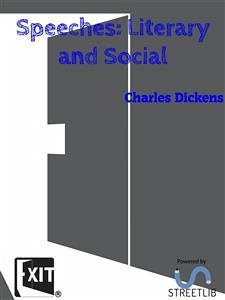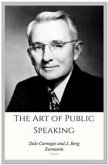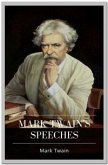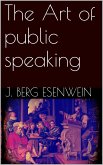INTRODUCTION.
Charles Dickens was born at Landport, Portsmouth, on February 7, 1812. At that time his father, Mr. John Dickens, held an office in the Navy Pay Department, the duties of which obliged him to reside alternately at the principal naval stations of England. But on the conclusion of peace in 1815 a considerable reduction was made by Government in this branch of the public service. Mr. John Dickens, among others, was pensioned off, and he removed to London with his wife and children, when his son Charles was hardly four years of age.
No doubt the varied bustling scenes of life witnessed by Charles Dickens in his early years, had an influence on his mind that gave him a taste for observing the manners and mental peculiarities of different classes of people engaged in the active pursuits of life, and quickened a naturally lively perception of the ridiculous, for which he was distinguished even in boyhood.
It is curious to observe how similar opportunities of becoming acquainted practically with life, and the busy actors on its varied scenes, in very early life, appear to influence the minds of thinking and imaginative men in after-years. Goldsmith’s pedestrian excursions on the Continent, Bulwer’s youthful rambles on foot in England, and equestrian expeditions in France, and Maclise’s extensive walks in boyhood over his native county, and the mountains and valleys of Wicklow a little later, were fraught with similar results.
Charles Dickens was born at Landport, Portsmouth, on February 7, 1812. At that time his father, Mr. John Dickens, held an office in the Navy Pay Department, the duties of which obliged him to reside alternately at the principal naval stations of England. But on the conclusion of peace in 1815 a considerable reduction was made by Government in this branch of the public service. Mr. John Dickens, among others, was pensioned off, and he removed to London with his wife and children, when his son Charles was hardly four years of age.
No doubt the varied bustling scenes of life witnessed by Charles Dickens in his early years, had an influence on his mind that gave him a taste for observing the manners and mental peculiarities of different classes of people engaged in the active pursuits of life, and quickened a naturally lively perception of the ridiculous, for which he was distinguished even in boyhood.
It is curious to observe how similar opportunities of becoming acquainted practically with life, and the busy actors on its varied scenes, in very early life, appear to influence the minds of thinking and imaginative men in after-years. Goldsmith’s pedestrian excursions on the Continent, Bulwer’s youthful rambles on foot in England, and equestrian expeditions in France, and Maclise’s extensive walks in boyhood over his native county, and the mountains and valleys of Wicklow a little later, were fraught with similar results.









